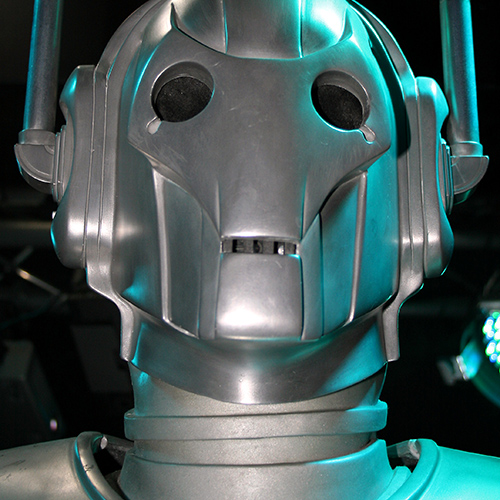 Culture & Ethics
Culture & Ethics
Transhumanism Is Really Minushumanism

Transhumanism is like a great old Woody Allen joke.
Agnes is having coffee with her friend Pearl. “How was the new restaurant,” Pearl asks. “Awful.” Agnes responds, “The food was terrible — and such small portions!”
Similarly, transhumanists say that humans are not good enough, smart enough, or strong enough — and we die way too soon!
Consider this piece by my transhumanist pal, brilliant self-promoter, and presidential candidate Zoltan Istvan, who apparently wants to become a vacuum cleaner. First, he puts down humanity as not good enough for a truly fulfilling life. From “Why I Advocate Becoming a Machine,” in Motherboard:
To understand why one’s future self could be markedly improved over one’s current self, consider how we perceive reality for a moment.
Human beings have five basic senses that send signals to our brain, telling us what’s out there in the world. These senses understand only tiny bits of the universe around us. For example, our eyes can only see about 1 percent of the light spectrum.
Our ears aren’t much better: they are unable to register many noises that other animals like dogs, dolphins, and bats can hear. Our sense of touch basically only works if we’re actually touching something.
Despite all these obvious physical inabilities, humans insist what we experience is “reality.” However, reality to someone with built-in microscopic or telephoto vision and hyper-sensitive hearing is potentially many times more complex and profound than anything a natural human being might experience.
Oh, woe is us, who lead such limited lives! The solution? Upgrade!
The reality is that many transhumanists want to change themselves dramatically. They want to replace limbs with mechanical endoskeleton parts so they can throw a football further than a mile. They want to bench press over a ton of weight. They want their metal fingertips to know the exact temperature of their coffee.
But why would that be special if everyone could do it?
Think about it. Whom do we most admire? We look up to those among us who strive to excel beyond their natural born abilities — whether an Olympian or a Special Olympian. Transhumanism is a cheap way to excellence — which isn’t excellence.
Istvan ultimately wants us to become machines:
Biology is simply not the best system out there for our species’ evolution. It’s frail, terminal, and needs to be upgraded. In fact, even machines may be upgraded in the future too, and rendered as junk as our intelligences figure out ways to become beings of pure organized energy. “Onward” is the classic transhumanist mantra.
But computing isn’t true intelligence. And perhaps more importantly, machines can’t feel! No love. No excitement. No fear. No true empathy or sympathy. No grief. In brief, no core humanity.
Indeed, some of the most truly human people I have ever met had Down syndrome — the antithesis of the transhumanist’s Utopian quest for hyper-intelligence and longevity. If we could only channel their purity and depth of love, our world would be better than any that could ever be made by becoming solipsistic machines.
In summary, Zoltan’s fantasy of becoming a transhuman machine would not make you more, but less than human.
I suggest a name change: Minushumanism.
Image: Cyberman from BBC’s Doctor Who, by Keven Law, Los Angeles, USA (Resistance is futile…) [CC BY-SA 2.0], via Wikimedia Commons.
